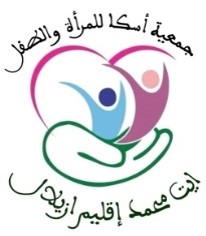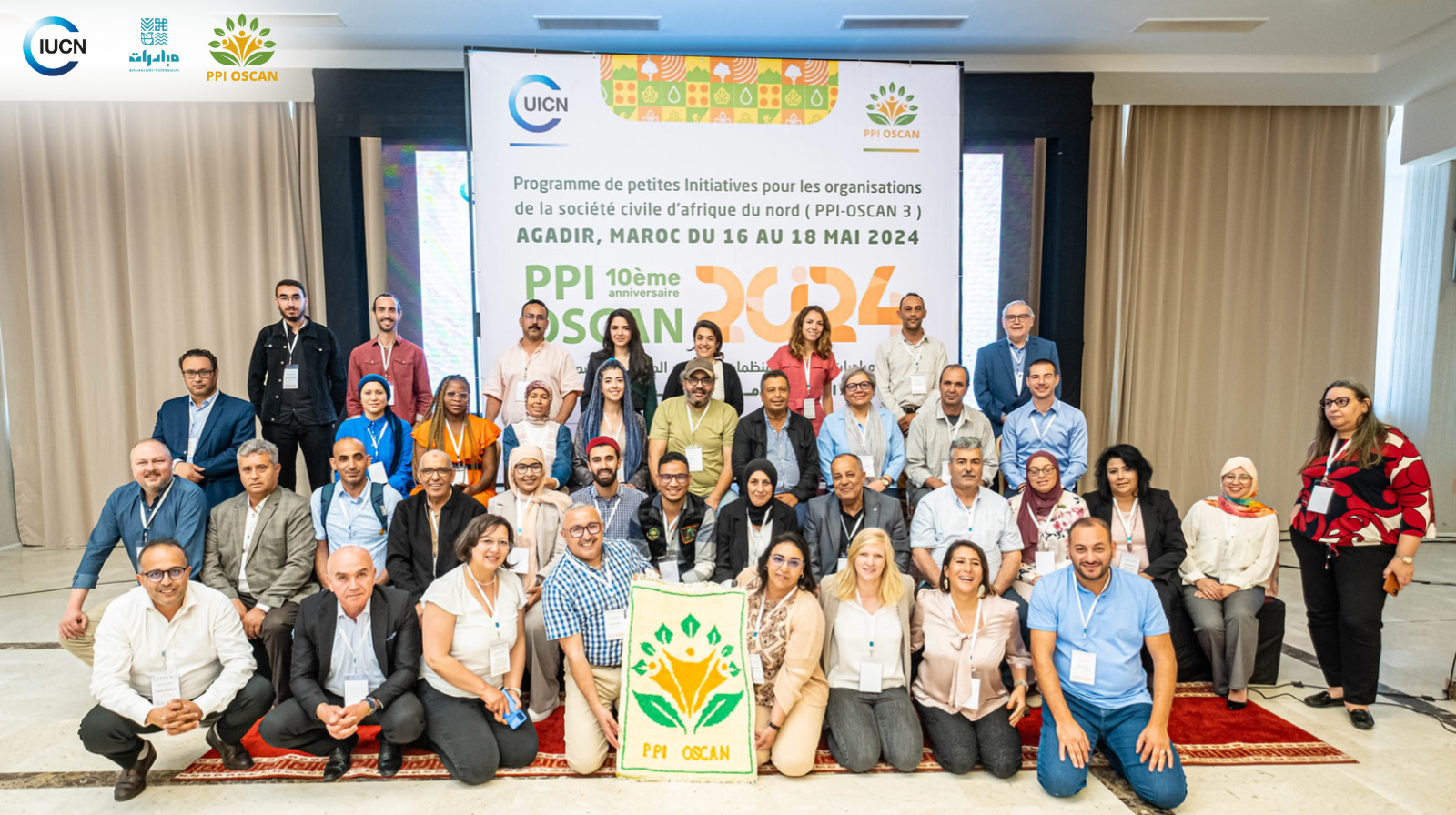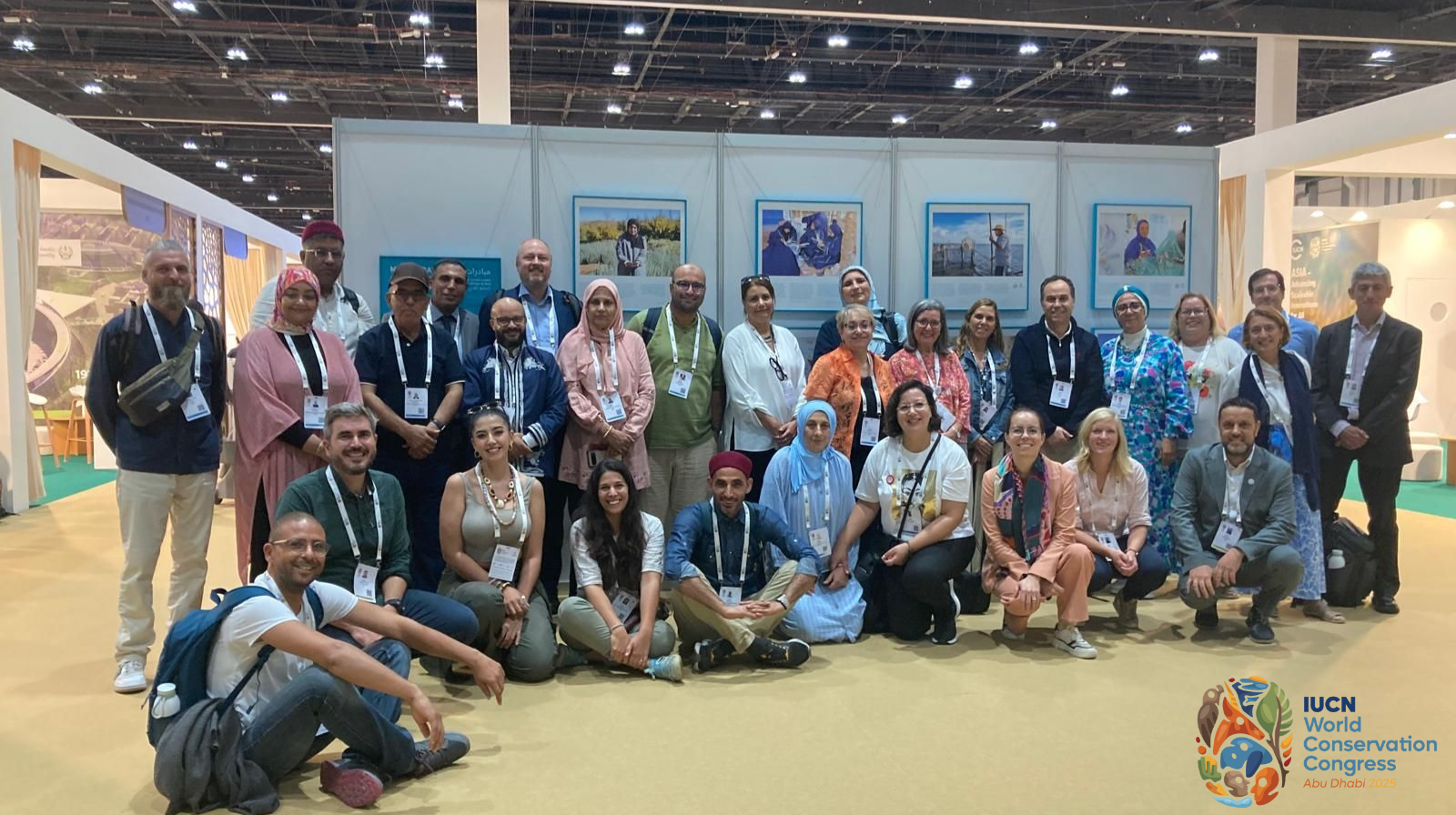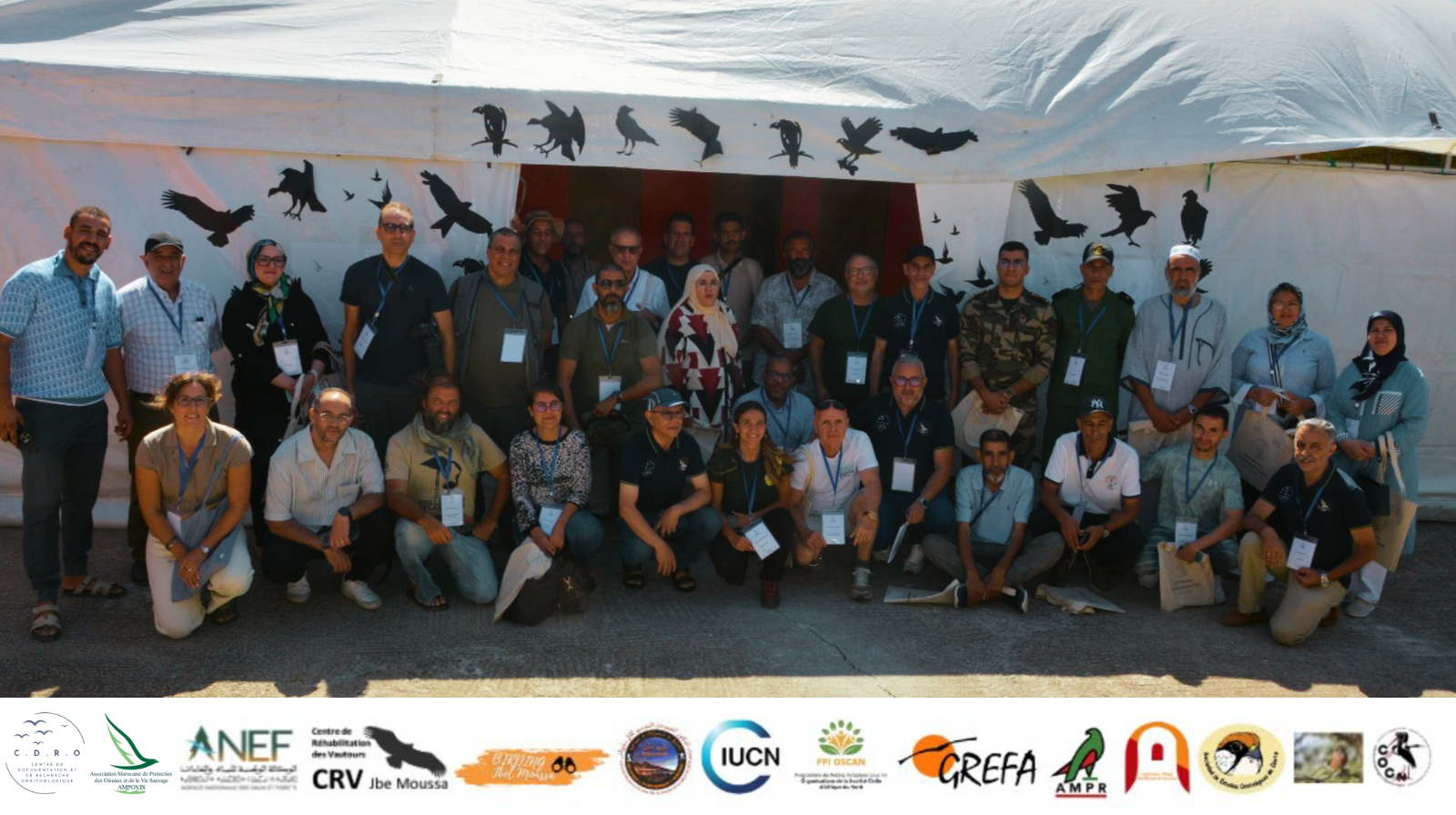Towards sustainable climate resilience in Ait M’Hamed: the successful use of biochar and agroecology
Since 2023, a project entitled “New approaches to climate change adaptation in Ait M’Hamed” has been implemented by the ASKA association pour la Femme et l’Enfant, as part of the PPI OSCAN 3 program coordinated by IUCN MED.
The project is designed to provide nature-based solutions to strengthen the resilience of mountain agroecosystems in the central High Atlas. It is based on the introduction of biochar and adapted agroecological practices, as part of an inclusive territorial dynamic. Through a series of combined actions – applied research, field demonstration, training, community mobilization – a local strategy for responding to the effects of climate change is gradually being built and shared.
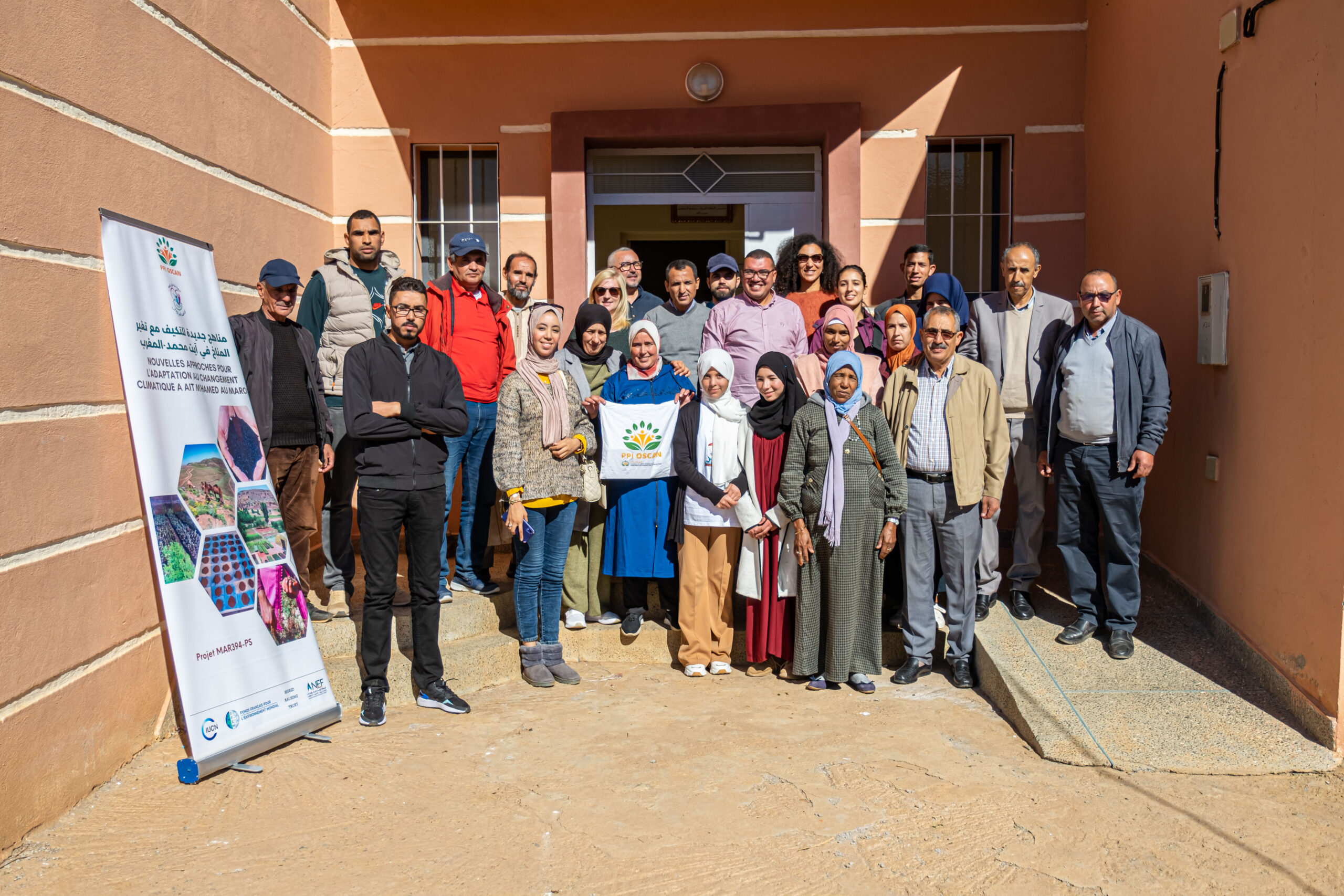
Nursery production and experimentation unit
The project involved setting up a semi-automatic unit to produce biochar, green charcoal and wood vinegar from local biomass. The unit comprises two mobile furnaces, a composting machine and a press. As the initial budget was exceeded, co-financing of 400,000 dirhams was obtained from INDH Azilal and the Nissae ASKA cooperative, demonstrating the project’s capacity for local mobilization.
In parallel, demonstration activities were supported by a community nursery where 17,000 seedlings were produced (in 2023 and 2024), 9,000 of which were distributed to 120 farmers. These plants include forest, fruit and aromatic species, grown on biochar-enriched substrates.
Pilot plots, scientific follow-up and encouraging results
The project identified 12 pilot plots, where agronomic tests were carried out with local species (carob, holm oak, dimorphic ash, almond, African pyrethrum…). The results were deemed very positive by the beneficiaries: biochar-enriched crops showed faster yields and greater resilience to climatic conditions, enabling farmers to easily compare results.
These experiments were supervised by researchers from Marrakech’s Faculty of Science, in partnership with pupils from the Ait M’Hamed high school and students from several countries (Morocco, Togo, Senegal, Nigeria), as part of a participatory scientific monitoring program.
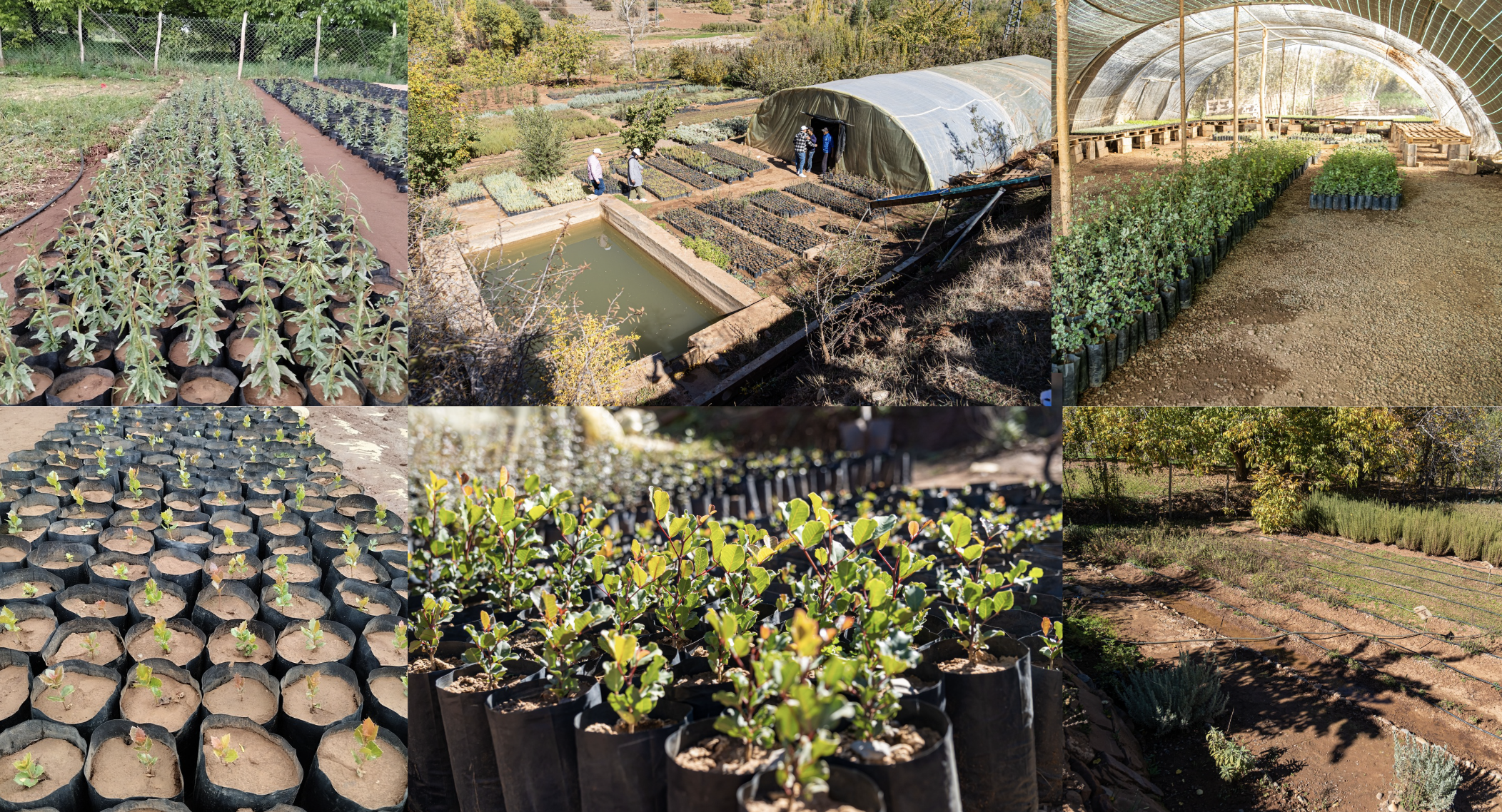
Training, awareness-raising and skills transfer
A major component of the project was dedicated to the popularization of agroecological practices and raising awareness of the challenges of climate change:
- 4 training sessions brought together 150 participants, 60% of whom were women, on techniques for producing biochar, green charcoal and wood vinegar.
- 5 demonstration workshops were held directly on the plots, with over 120 participants, to test the use of biochar in agriculture.
- Meetings with over 800 people were organized through educational visits, awareness days and activities with young people.
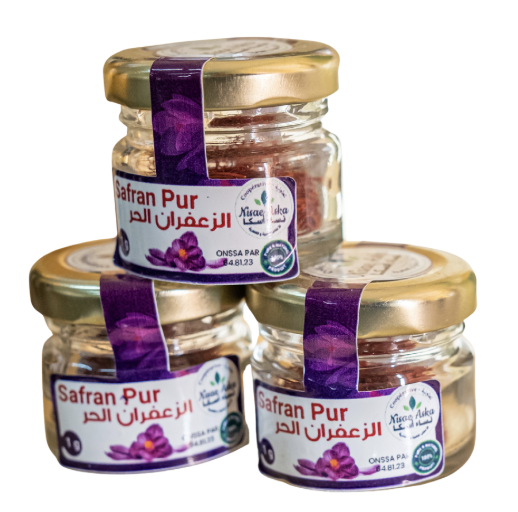
A results workshop was held at the association’s headquarters, attended by experts from ANEF, ENFI, the Association Marocaine des Sciences Régionales, and representatives of other PPI OSCAN projects.
Capitalization, sustainability and outreach
The project’s impact goes far beyond the initial framework, thanks to an ambitious partnership and capitalization strategy, made possible by the association’s strengthened capacities via the PPI OSCAN 3 program.
New initiatives and structuring projects :
- Twinning agreements signed with three associations committed to protecting biodiversity.
- Creation of an educational school with the Ait M’Hamed high school.
- New agreements with academic, institutional and associative partners, as part of complementary projects.
These projects include
- North Africa coordination of the APAC movement, in partnership with the ICCA Consortium and the Environmental Defenders Collaborative, to structure a regional network around living territories.
- Community observatory of climate-resilient seeds, in collaboration with the MARK Herbarium and local communities.
- Climate-adapted gardens, a scientific project conducted with AMSR, the Semlalia Faculty of Science and the Nissae ASKA cooperative to document the benefits of biochar.
- TADAFOR project (financed by the European Union, with Enabel), aimed at strengthening citizen participation and the gender approach in the commune of Ait M’Hamed.
- Project to empower rural women, in partnership with the Ministry of Tourism, Handicrafts and the Social Solidarity Economy.
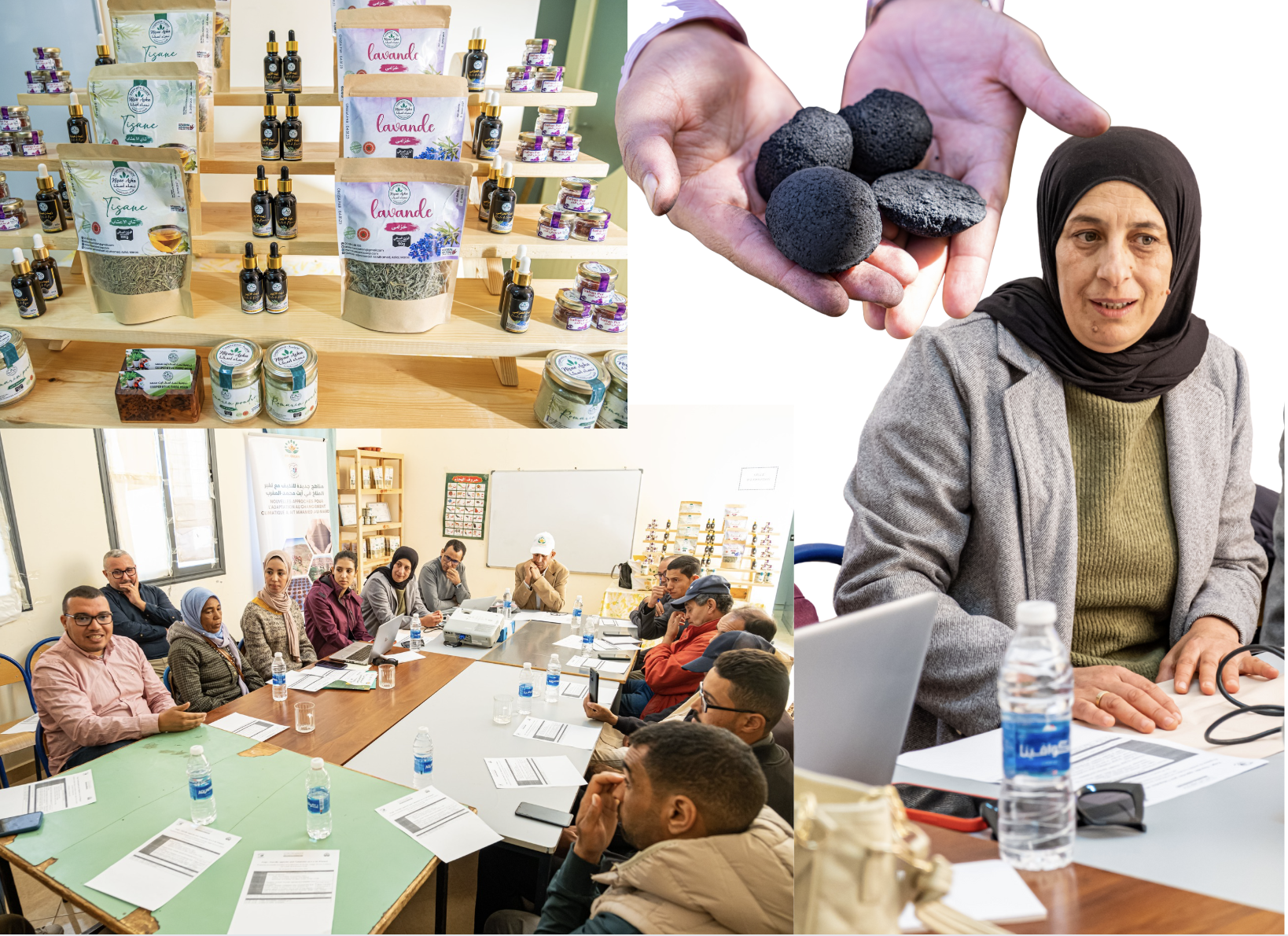
The project led by the ASKA association represents an integrated and innovative model for adapting to climate change, based on the mobilization of local resources, community involvement and scientific input. Thanks to support from the PPI OSCAN 3 program, the association has been able to strengthen its operational capacities, structure new partnerships and integrate its actions into a sustainable territorial strategy. This project shows that simple, ecological and participative solutions can generate concrete and lasting impacts, to the benefit of local populations and biodiversity.
- Implementation period: 22 months
- Contact: +212 668048155
- Address: La commune d’Ait M’hamed, province d’Azilal
- Email: aska.association@gmail.com
- Project photos: the Flickr link of the project album https://flic.kr/s/aHBqjB47B
- Facebook : https://www.facebook.com/profile.php?id=61553391190875
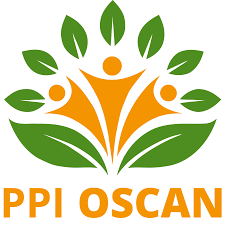 This project is part of the third phase of the Small Initiatives Program for North African CSOs (PPI OSCAN), coordinated by the IUCN Centre for Mediterranean Cooperation, and financed by the French Global Environment Facility (FFEM), the MAVA Foundation and the Sigrid Rausing Trust Foundation. Subsidized projects aim to conserve species and ecosystems with remarkable biodiversity, and to enhance the benefits of conservation and sustainable livelihoods. To find out more about OSCAN 3 PPI projects: 5.Projects – MUBADARAT (mubadarat-uicn.org).
This project is part of the third phase of the Small Initiatives Program for North African CSOs (PPI OSCAN), coordinated by the IUCN Centre for Mediterranean Cooperation, and financed by the French Global Environment Facility (FFEM), the MAVA Foundation and the Sigrid Rausing Trust Foundation. Subsidized projects aim to conserve species and ecosystems with remarkable biodiversity, and to enhance the benefits of conservation and sustainable livelihoods. To find out more about OSCAN 3 PPI projects: 5.Projects – MUBADARAT (mubadarat-uicn.org).


